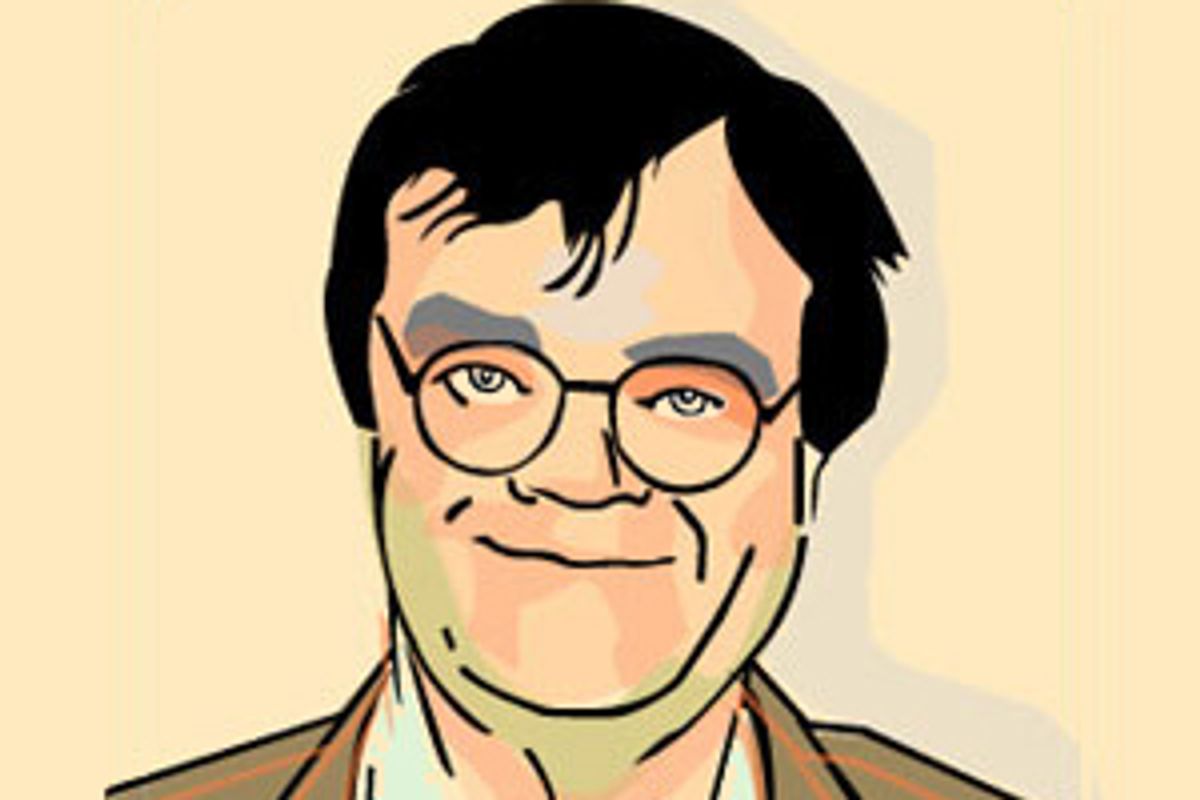In Baltimore with friends Sunday morning, a splendid fall day under blue skies, we marched off to the nearest church and found ourselves in an old brownstone temple of 1852, wooden box pews, stained glass on all sides, old tiled floor, for a high Anglican-Catholic Mass, a troop of choristers in white, altar boys, bearded priests in medieval vestments, holy water and puffs of smoke and bells and chanting of scripture, precision bowing and genuflecting, all rather exotic for an old fundamentalist like me but deeply moving, and it made me think about my father, whose birthday was Oct. 12, and brought me to tears.
It was formal high Mass, none of that "hi and how are we all doing this morning" chumminess, and the homily only summarized the scripture texts about healing, it didn't turn into an essay on healthcare. Ten voices strong and true in the choir and positioned as they were under the great arch of the chancel, their tender polyphonic Kyrie and Gloria infused the whole building with pure kindness.
The singing was O my God just heartbreakingly good. There were less than 30 of us in the pews, fewer than the names on the prayer list, and to hear "Behold, how good and joyful it is; brethren, to dwell together in unity" sung so eloquently as the priests swung to their tasks was to be present in a moment of extravagant grace that does not depend on numbers or any other measure of success for its meaning, just as the Grand Canyon does not depend on busloads of tourists to be magnificent. Most of our brethren, bless them, are off enjoying brunch or reading the funnies or lifting weights at the gym, and our faithfulness does not make us better people. We simply happened to walk by and see this vast canyon of God's love and stand looking into it.
Faithfulness was a guiding principle in Dad's life. He was the fifth of eight children of a farmer and a schoolteacher on a little farm on Trott Brook in Minnesota. Dad worked with his hands, tending his garden, fixing his cars, cutting and joining wood. He was faithful to his family, to the Ford Motor Co., and also to his separatist theology and visions of millennial splendor. If you are true to Christ and separate yourself from this world, you will be raised to glory in paradise. My father was faithful to this, even as his little band of believers dwindled, diminished by schism and by escaping children, and I was unfaithful.
I separated myself from the separatists with my eyes open. I wanted to live a big complicated life and not sit in a closet. I do not repent of that, though I have plenty else to repent of and am sorry that it came between Dad and me. There have been dozens of people who happened to sit next to me on airplanes over the years who knew more about me than my dad did. No more his fault than mine.
Now I'm an old, tired Democrat, sick of this infernal war that may go on for the rest of my life and in which more of our brethren will die miserably, both American and Iraqi. I'm sick of politics today, the cleverness and soullessness of it. I am still angry at Al Gore for wearing those stupid sweaters in 2000 and pretending he didn't know Bill Clinton, and I am angry at everyone who voted for Ralph Nader. I hope the next time they turn the key in the ignition their air bags blow up.
But here in an old brownstone church at an ancient ceremony, there is a moment of separation from all the griefs of this world. Ten men and women are singing a cappella, "Bless the Lord, O my soul, and all that is within me bless his holy name," and their voices drench us fugitive worshippers kneeling, naked, trembling, needy, in the knowledge of grace, and when we arise and go out into Baltimore, the blessing follows us.
It followed me as I ate a dozen oysters that afternoon and hung around the library and paid homage to H.L. Mencken's house on Union Square, that hearty old sinner who said, "Church is a place in which gentlemen who have never been to heaven brag about it to persons who will never get there." Thank you for your service to our language, Henry. Thank you for your life, Dad. And now onward to November and the first good snowfall and the first day of ice-skating.
(Garrison Keillor's "A Prairie Home Companion" can be heard Saturday nights on public radio stations across the country.)
© 2007 by Garrison Keillor. All rights reserved. Distributed by Tribune Media Services, Inc.



Shares